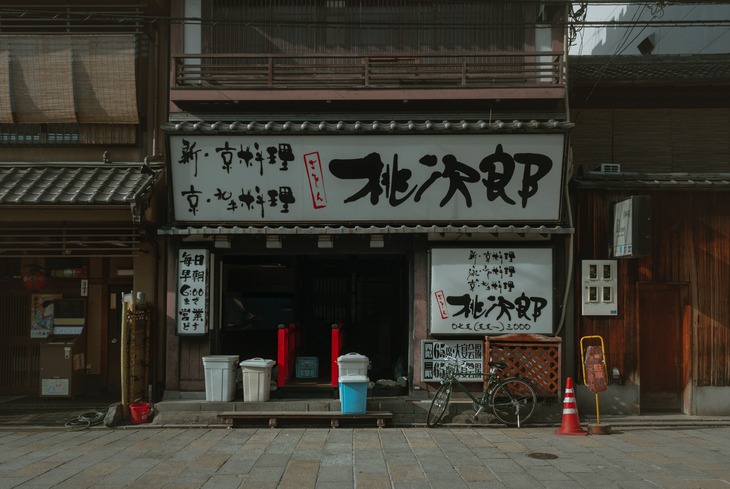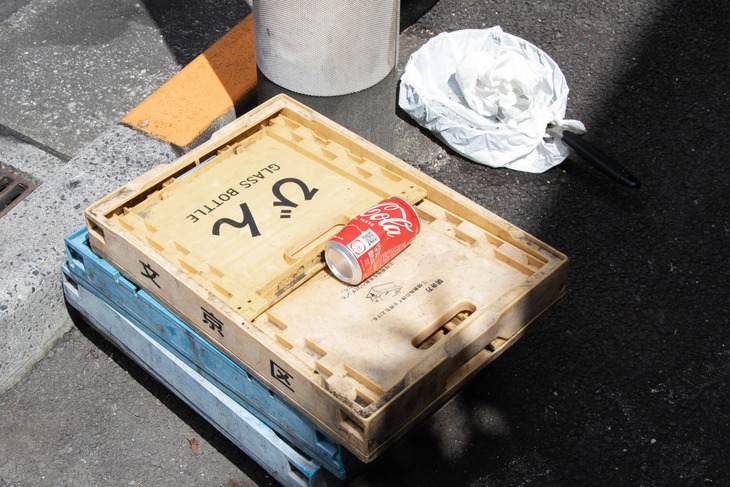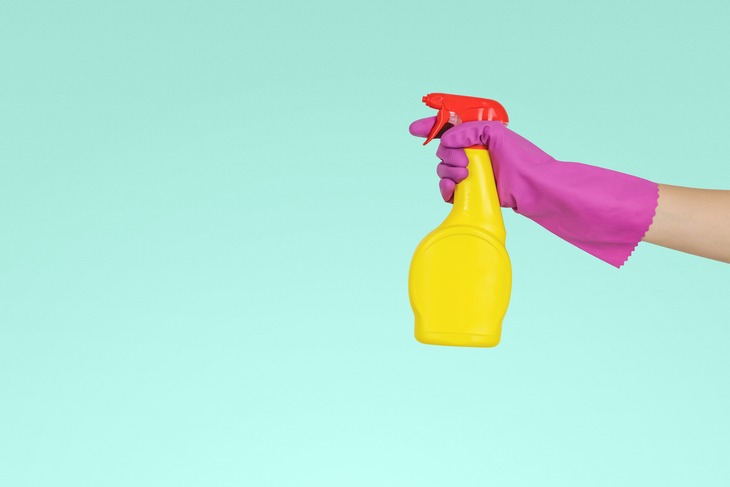Japan's Garbage Disposal Rules: Explained!
Japanese cities are, for the most part, remarkably clean and trash-free. It's genuinely not common, even in major train stations in Tokyo like Shinjuku or Shibuya, to see overflowing garbage cans or litter on the ground.
While this could be simply attributed to people in Japan doing a good job cleaning and avoiding littering, the reality is that since Japan is an island nation mostly covered by mountains, garbage disposal has to be carefully managed by taking into account the limited space available in the country. It just isn't realistic for Japan to be able to dump all of its garbage into large landfills like other countries with more open spaces can do, and therefore Japan has developed its own systems to organize and dispose of trash.
What this means for you if you are living in Japan is that you will have to have to understand and follow the strict, and sometimes quite complicated, garbage sorting rules in Japan.
For expats who have recently moved to Japan, this can be overwhelming at first. While there are overarching rules about trash disposal in Japan, each municipality determines its own specific rules on how to separate trash, which can make it even more confusing for someone who just moved to Japan.
So to help you avoid a frustrating situation where garbage collectors won't take your trash because you didn't sort it properly or put it out on the wrong day, let's go over all the information you need to know about garbage disposal in Japan.
How to Sort Trash in Japan
As we mentioned before, Japan doesn't have space for landfills like some other countries around the world do. To deal with this, Japan burns much of its garbage that can't be recycled at incineration plants. This is why generally, trash in Japan falls under two categories: "burnable" and "non-burnable." However, depending on where you live it may be more complicated than this.
Generally speaking, burnable trash includes food waste, paper scraps, kitchen waste, waste from gardens and yards such as leaves or tree branches, diapers, and so on.
Also included in the broad umbrella of "burnable trash" is recyclable garbage. Recyclable garbage may include plastic bottles (referred to as PET bottles in Japan), plastic containers, plastic bags, toys, leather items, newspapers, cardboard, and so on. Depending on the city, some recyclable garbage like plastic bags may simply be included in burnable trash.
Non-burnable trash generally includes things like glassware and ceramics (including things like broken bowls or glasses), aluminum cans, broken small appliances or umbrellas, metal items, batteries, and so on.
There is also the category of "oversized garbage" (think large appliances or furniture) which is usually only collected once a month. For this kind of garbage, you usually need to apply for the garbage to be picked up and buy a special sticker to put on the trash or it will be ignored by collectors.
The big problem is that every city classifies what is "burnable," what is "recyclable garbage," and what is "non-burnable garbage" in different ways and has different rules for disposing of these things, so it is only possible to give a broad overview.
Some cities also have quite strict rules about how to dispose of recyclable plastics. For example, in some cities, PET bottles have to be put into their own separate garbage bags and disposed of on their own. But before you can dispose of them, you have to take off the cap and the label from every bottle as those are not recyclable. That's why in Japan, plastic labels are usually really easy to take off of bottles. But this can create an awkward situation where if, for example, you forget to take the label off a couple of plastic bottles, the garbage collectors won't take your bag of PET bottles, meaning you'll have to dig through that bag, take off the labels, and then put out the bag of bottles on the next collection day.
But in other cities, you may be allowed to put plastic bottles in a broader category of garbage such as "recyclable plastics" without taking off any labels or caps and the collectors will take your trash without any issues.
And since different kinds of recyclable garbage may be collected on different days (more on that soon), you have to be careful to make sure that you are properly separating each kind of trash based on your city's rules. For example, newspapers and cardboard boxes may be collected one week while the next week cans and plastic bottles are collected.
In short, how you have to separate your garbage depends entirely on how your city chooses to categorize each kind of garbage and how they ask you to separate the garbage. It can be very confusing at first, so make sure to get the proper information from your city to be able to separate your trash properly and make sure it is collected. So let's look at how to know when to dispose of your trash.
Understanding Japan's Garbage Disposal Schedule
When you register your address at your local city hall or ward office, you should receive a calendar showing the different garbage disposal days for different kinds of trash. If you live in an apartment complex, the apartment management company may provide this to you instead. As long as you follow the calendar and put out your trash on the garbage days specified by the area you live in, you shouldn't have any problems.
Most places ask you to put out your garbage in the morning before a certain hour when the garbage collectors will come to pick up your trash. Garbage collectors may come to your home or apartment complex quite early, so if you don't put it out soon enough they won't collect it and you'll have to wait until the next designated day.
This can be especially frustrating if the trash you want to throw out is only collected once or twice a month. As we mentioned before, some cities collect different kinds of recyclable trash or non-burnable trash only once every two weeks (on an alternating schedule) or perhaps even once a month, so you need to check the schedule carefully so that you're not stuck with a situation where you have two giant bags of aluminum cans sitting in your home because you thought this week was plastic bottle week but it was actually aluminum can and newspaper week.
On the other hand, other cities may consistently pick up these kinds of recyclables consistently every week, in which case it is not as big a concern. And in most places, burnable garbage is collected twice a week, so you shouldn't need to worry too much about that kind of trash stinking up your home.
Be sure to understand and check your area's collection schedule carefully so that you can always throw out your trash on the right day and don't end up kicking yourself for forgetting trash day.
Where to Put Out Your Trash
Depending on your home or apartment, where you put out your trash and when you can put it out may vary. For example, some apartment buildings may have their own designated dumpster or cage where you can put your trash. In those kinds of situations, you can probably safely get away with putting out your trash the night before.
Other apartments may have different arrangements, such as a net that is thrown over all of the trash to keep crows and other trash-loving animals out of the garbage. If this is the case for your apartment or neighborhood, it's probably best to not put your trash out the night before (especially if the net is not set up) because these wild animals can and will get into the trash and scatter it all over the place.
Sometimes these dumpsters, cages, or nets may be at a designated collection spot used by more than one apartment, so keep in mind that where you put out your trash may not be right in front of your building.
If you live in a house, usually you can put your trash out in front of your home in a trashcan or under a net and it will be collected, but be sure to ask your real estate agent when you move in as to what the specific rules are, as you may have to put your garbage in a designated collection spot as well.
What are "Designated Garbage Bags"?
The last big thing to be aware of about garbage in Japan is that many municipalities require you to use "designated garbage bags" to throw out your trash.
These are specific trash bags that are usually sold at any convenience store or supermarket, and if your trash is not in one of these bags, it will not be collected. Some cities even have different colors of designated trash bags for different kinds of trash, adding an extra layer of complication to the system.
If your city does not require designated trash bags, they may have specific rules about what kinds of bags you can use. For example, some cities only allow big brown paper bags to be used for burnable trash, while others specify that you need to use transparent, water-resistant bags for plastics so that the collectors can see the contents of the bag.
Again, this all depends on the city you live in, so be sure to check the rules for your municipality to know whether you need to use designated garbage bags for your trash or not.
Check with Your City Hall For More Info!
We've given an overview of everything you need to know about sorting and disposing of your garbage in Japan, but ultimately the specifics depend entirely on where you live. Since every city in Japan has its own rules about garbage disposal there's no way we could possibly cover everything, meaning you will need to do some of the work yourself.
When you move to Japan, or move to a new city, you'll have to go to your local city hall or ward office to register your address. At this time, you'll probably receive a stack of flyers or booklets detailing important information about your town as well as resources available to you, but be sure to check if garbage disposal rules are included! Many towns have detailed information about how to sort garbage and garbage collection schedules available in English and other languages for foreign residents, so if you're not sure you've been given this information, ask! It can be hard to find the correct rules online at times, especially if you don't live in a huge city like Tokyo, so getting the rules and details directly from city hall is the best way to ensure you don't make any mistakes when you're sorting your trash.
While it may seem overwhelming, confusing, and perhaps even a little annoying at first, eventually sorting trash while following Japan's rules will become second nature to you and become just another part of your life in Japan.
























